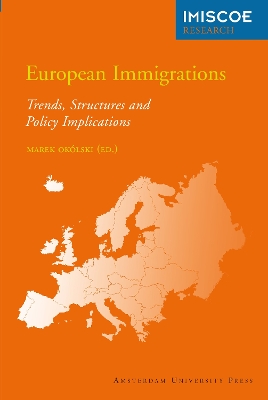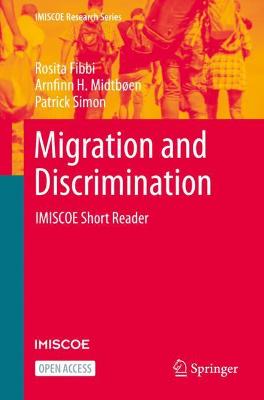IMISCOE Research
3 total works
International Migration in Europe
by Corrado Bonifazi, Jeannette Schoorl, Patrick Simon, and Marek Okolski
This volume is one of few attempts to conceive of the ‘Old Continent’ as a common economic and cultural space that fully incorporates its eastern part, while still viewing post-enlargement Europe as an area that – despite nation-specific histories – maintains a high degree of social and political coherence.
The book is very comprehensive, with deep insights into aspects of immigration throughout different periods and changing socio-economic environments. Contents come from new empirical evidence, specially designed and collected. A great asset is the mix of authors, representing several academic centres across Europe yet pursuing a common vision of European migration, past, present and future.
Migration and Discrimination
by Rosita Fibbi, Arnfinn H. Midtboen, and Patrick Simon
This open access short reader provides a state of the art overview of the discrimination research field, with particular focus on discrimination against immigrants and their descendants. It covers the ways in which discrimination is defined and conceptualized, how it is measured, how it may be theorized and explained, and how it might be combated by legal and policy means. The book also presents empirical results from studies of discrimination across the world to show the magnitude of the problem and the difficulties of comparison across national borders. The concluding chapter engages in a critical discussion of the relationship between discrimination and integration as well as pointing out promising directions for future studies. As such this short reader is a valuable read to undergraduate students, as well as graduate students, scholars, policy makers and the general public.


